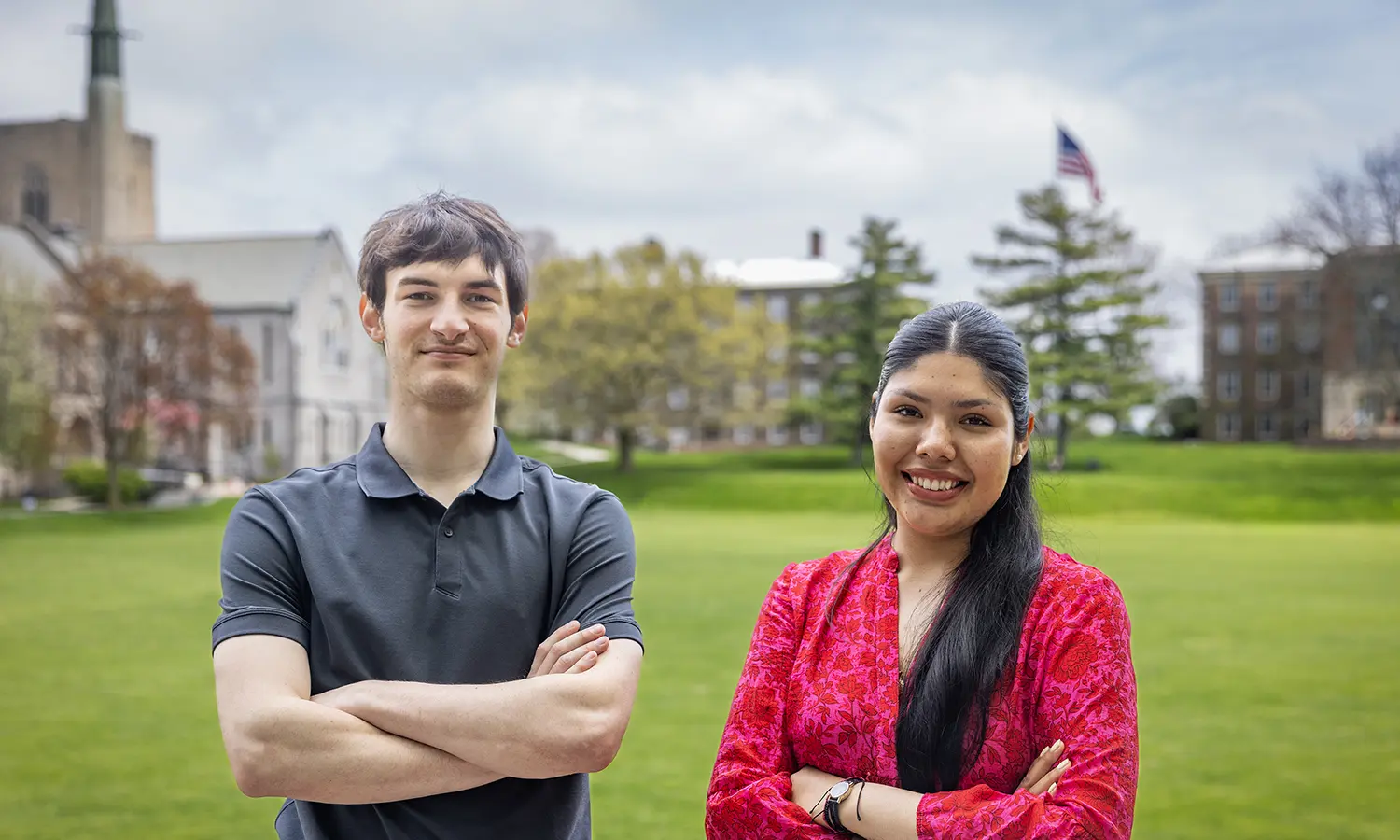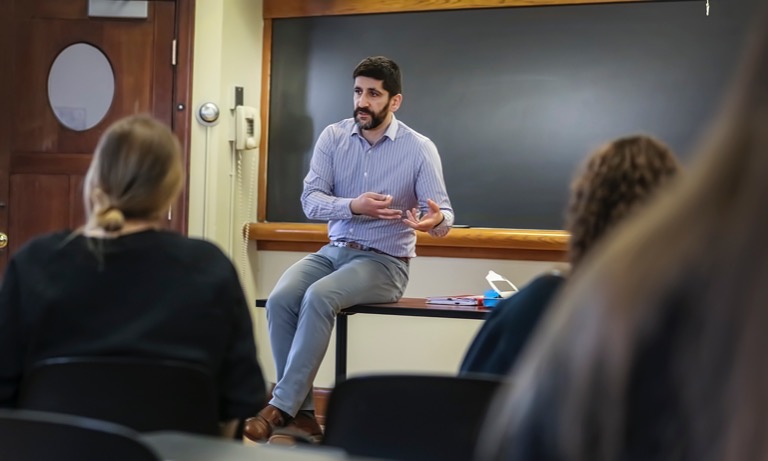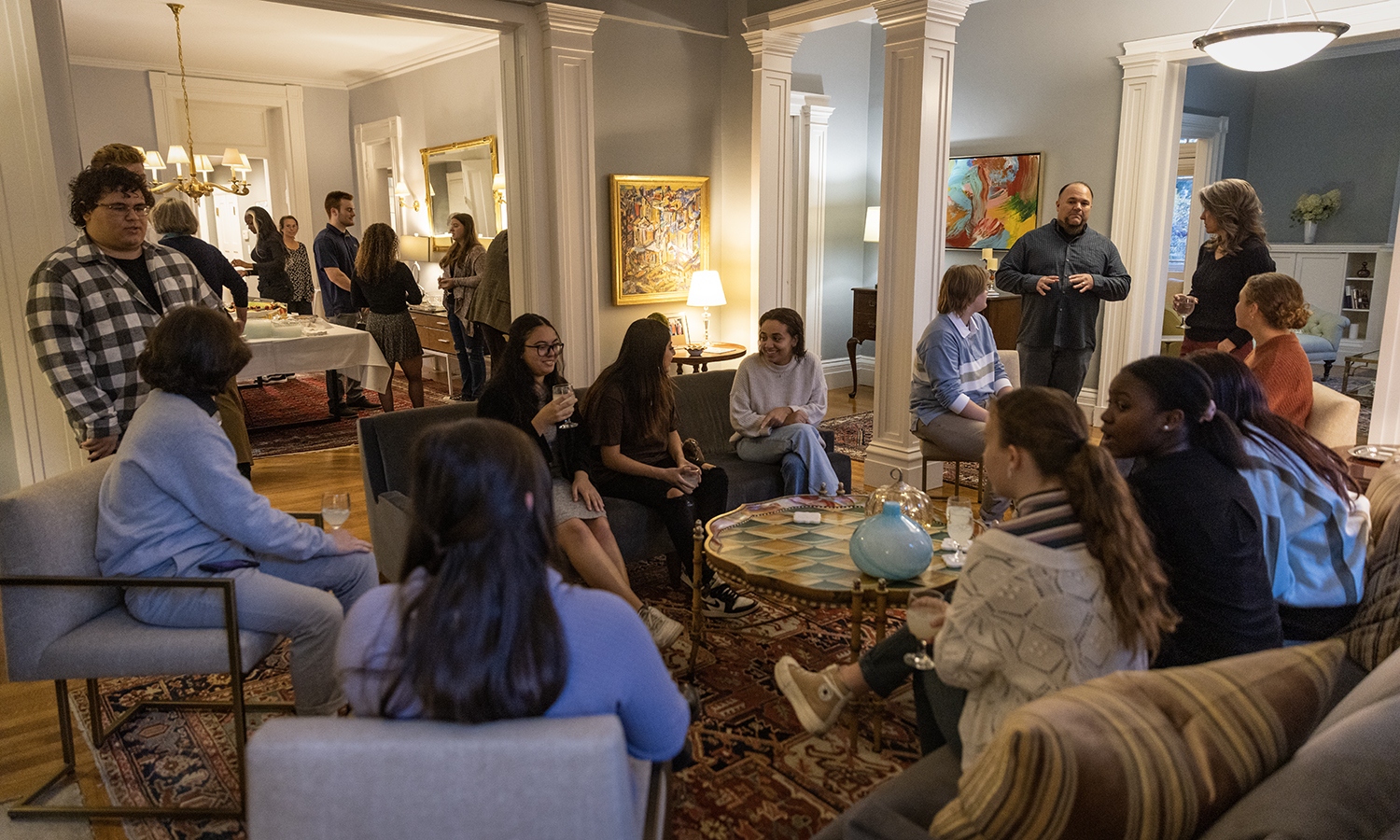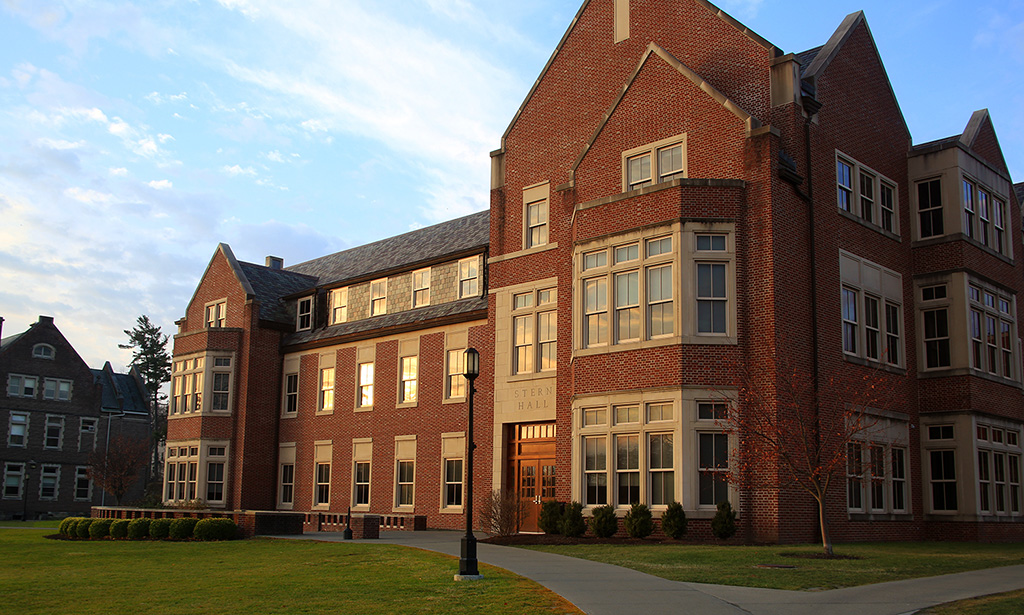Student SpotlightSupporting the Community

Hailey Galvan '26
Working to give back to and represent her peers, Hailey has been elected to the Hobart and William Smith Board of Trustees as a Junior Student Trustee.

Gain insight into social problems, social theory and social change through the sociology department at HWS. As an activist and change oriented department, you’ll learn and study contemporary social issues, such as power and inequality, community, social policy, criminology and criminal justice, organizational dysfunction, urban life, educational reforms, marriage, and the family. You’ll exit the program with a strong set of skills for asking and answering broad and narrow questions about social life.

Working to give back to and represent her peers, Hailey has been elected to the Hobart and William Smith Board of Trustees as a Junior Student Trustee.
Sociology students looking to engage more in their work can study and complete Honors and research projects in their chosen topic with the guidance of a faculty mentor.
Past examples of Honors projects include:

By studying sociology, you can partner with Geneva area schools to explore the class relations of students, collaborate with non-profits to impact government policy or probe solutions to gender discrimination in American or global institutions.
Because learning goes beyond textbooks or classrooms and into the community, you’ll get to explore the world’s most pressing issues while building the skills and insights you need to play a role in making its better future.
![$intro-image[2]/descendant::img/@alt](/images/academics/soc/soc-global.jpeg)
Study the Maori in New Zealand or inequality in Vietnam.
Wherever you go, you’ll apply classroom knowledge, develop cultural understanding and build global connections that expand your personal capacity and sense of purpose.
Majors can count up to two courses not taught by HWS sociology faculty from study abroad programs. Minors can count one. These cannot be core courses and may only be counted as 200-level electives. All courses must be approved by the department.

Sociology courses focus not only on the academic approaches to studying power and difference but also the practical processes of building community across categories of difference and contributing to organizations for social change.
Community based courses:
Courses that address power and difference:
Courses that address policy and organizational change:
Explore areas like disparities and social consequences of the past, present and how they’ll affect the future.
Through in-depth analysis, explore the ways education in the United States at times challenges and at times reproduces racial hierarchy.
Analyze the causes and consequences of alcohol use and misuse both in terms of its social construction in various cultural contexts as well as biochemical influences.
Examine power relationships that are inherent in deviance and social control, and learn how “deviants” experience deviance on a personal level.

With all sociology classes and department faculty housed in one building, Stern Hall provides an all-in-one experience for students in the subject. Take advantage of 27,000 square feet of academic space, including classrooms fit for audio and visual displays, research and seminar rooms and a large lecture classroom and lab. You’ll learn in a setting that offers similar resources to larger universities but with the smaller, personalized instruction that Hobart and William Smith offer.

"During my time at the Colleges, I faced some of the most intellectual and personal challenges that I have ever experienced, but I know that they have made me into who I am today and I am forever grateful."